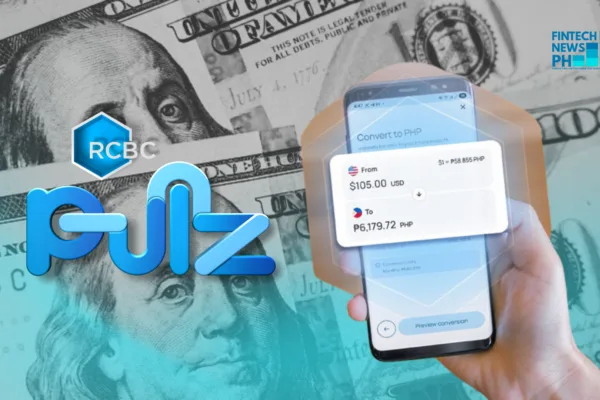by Leira Mananzan, Reporter
The Securities and Exchange Commission (SEC) – the Philippines’ financial regulator – has ordered seven online lending platforms to immediately cease operations for operating without proper registration.
In separate orders dated Aug. 15, 2025, the SEC’s Financing and Lending Companies Department (FinLend) directed Cash Konek, Pesosuki, Yescom Lending–Quick Cash Loan, Peso101–Fast Loans PH, Peso Cow–Mabilis Pera Loan, Swiftloan: Loan App Philippines, and Pera Loan: Fast Cash PH to “stop operating OLPs that are not registered with the SEC”.
These Cease-and-Desist Orders (CDOs) target platforms found “promoting or facilitating lending-related transactions without the necessary registration and approval from the Commission”.
The action continues the SEC’s consumer protection drive against rogue fintech lenders, underscoring its commitment to safeguard borrowers in the expanding online lending market
Regulatory authority and consumer protection laws

The SEC’s crackdown is grounded in existing laws and regulations governing non-bank lending. Under SEC Memorandum Circular No. 19, Series of 2019 (MC 19), licensed financing and lending companies must fully disclose any online lending platforms (OLPs) they operate.
The SEC reaffirmed that “the firms’ unrecorded OLPs violate MC No. 19… which requires financing and lending firms to disclose their OLPs”. In addition, MC No. 10 (issued Nov. 5, 2021) placed a moratorium on the registration of any new OLPs. The SEC noted the seven firms’ operations also flouted this moratorium.
More broadly, the Financial Products and Services Consumer Protection Act (RA 11765, 2022) grants the SEC explicit power to enforce regulations and impose penalties on financial service providers that violate consumer protection rules.
In the recent enforcement orders, the SEC cited RA 11765 as authorizing the agency “to impose enforcement actions, such as a cease and desist order, against financial service providers” that fail to comply with the law and its implementing rules.
The SEC’s FinLend department – the unit responsible for overseeing financing and lending companies – explained that unregistered OLPs “circumvent the Commission’s regulatory and supervisory authority,” thereby exposing the public to “potential risks, such as abusive and unfair debt collection practices, unjust interest rates, and violation of data privacy rights”.
According to the SEC, these unlicensed apps effectively operate outside the safety net of rate caps and oversight; in contrast, registered lending companies are bound by the Lending Company Regulation Act and Financing Company Act, which impose interest-rate limits (typically 2% per month on loans) and consumer safeguards.
By issuing CDOs, the SEC aims “to prevent further harm or prejudice to the public, and to safeguard the integrity of the regulatory framework governing lending companies”. In short, enforcement actions like these strengthen consumer protection in the fintech sector by removing predatory players from the market.
Details of the enforcement orders
The seven targeted platforms operate through mobile apps and online channels, but none was found to have a valid SEC certificate of authority.
In its Aug. 25, 2025 public statement, the SEC named all seven by their trade names and confirmed that Cease-and-Desist Orders issued on Aug. 15 bar them (as well as their owners, operators and agents) from offering any lending-related services until they comply with registration requirements.
The SEC highlighted that the violations include failure to report the OLPs in regulatory filings and launching new lending apps during a moratorium.
These orders extend a recent enforcement wave against so-called “online lenders” that the SEC has deemed illegal. Industry observers note that many fintech loan apps market quick cash with minimal requirements, often sidestepping formal rules.
The seven companies flagged in this round had actively promoted loans via social media and app stores, but – like previous violators – they declined to disclose publicly that they are unregistered. In media interviews, SEC officials emphasize that their actions are meant to protect borrowers from schemes that escape normal oversight.
Verification of registration status

A key question for consumers is whether any of these platforms are truly registered with the SEC. It found SEC records and found no active SEC registration under any of the app names listed above. In practice, all these platforms appear to be brands or products of larger companies, and in almost all cases the underlying company is indeed a registered lender – but the app itself was never officially disclosed. For example:
- Cash Konek – Operated by Andromeda Lending Corp., which is a legitimate SEC-registered financing company (Registration No. CS201903393, Certificate of Authority No. 2901). However, the “Cash Konek” app itself was not declared to the SEC as one of Andromeda’s OLPs.
- Pesosuki – Operated by Acquire Lending and Trading Corp. (Reg. No. CS201708658). Acquire Lending is SEC-registered (CA No. 2144) and funds loans via the Pesosuki app, but again the app was not listed with the SEC.
- Yescom Lending – Quick Cash Loan – Operated by Green Pocket Lending Inc. (SEC Reg. No. 2023040095223-27, CA No. L-23-0414-76). Green Pocket Lending holds a valid SEC license for financing and lending, but it did not disclose “Yescom Lending” as a platform under its registration.
- Peso101 – Fast Loans PH – Operated by Peso 101 Lending Services, Inc. (Reg. No. CS201919921, CA No. 3183). Peso 101 LSI is properly registered and authorized to lend, yet the “Peso101” app was never reflected in its SEC filings.
- Swiftloan: Loan App Philippines – Operated by Swift Lending Technology Inc. (Reg. No. CS201918485, CA No. 3160). Swift Lending Technology is a registered lending company, but again the app “Swiftloan” was not officially recorded.
- Pera Loan: Fast Cash PH – Operated by Pera Loan 7 Lending Corp. (Reg. No. CS201915879, CA No. 3095). Pera Loan 7 LC is SEC-authorized, but the “Pera Loan” app is not listed in its disclosure.
- Peso Cow – Mabilis Pera Loan – No SEC registration could be found under any company with this name or acronym. This platform appears entirely unregistered.
In summary, none of the seven app names exists as a registered entity in SEC’s system. Instead, each (except Peso Cow) is affiliated with a bona fide SEC-registered financing company, which may face scrutiny for failing to list the app in its official records.
The SEC’s orders treat the apps themselves as unregistered “fronts,” making their operation illegal.
Implications for consumers and the fintech industry
The SEC’s latest action has significant implications for borrowers and the fintech sector. For consumers, the order signals that loans offered through these apps are not protected by law. Any agreements entered into through Cash Konek, Pesosuki, Yescom Lending, et al., are effectively void of legal sanction – meaning the lender has no authority under Philippine law.
Borrowers should be wary: these unregistered apps can charge higher-than-allowed interest, impose hidden fees, and may harass debtors with little regulatory oversight.
By contrast, registered financing companies must follow legal caps (currently 2% per month) and fair collection rules. In the SEC’s words, illegal OLPs “circumvent the Commission’s regulatory and supervisory authority,” exposing borrowers to abusive debt collection and unjust interest rates.
For the fintech industry, the crackdown is a reminder that regulatory compliance is non-negotiable. Many legitimate fintech lenders and mobile banks emphasize transparency, data privacy, and consumer protection – values reinforced by SEC actions. The enforcement also levels the playing field: it removes unlicensed players that undercut the market by ignoring rules.
In recent years the SEC has revoked or suspended dozens of financing companies for various violations (including failing to submit reports or illegally soliciting funds). This wave of CDOs against OLPs fits into that broader “clean-up” of the industry. Analysts say such enforcement builds public trust in fintech by showing that regulators will intervene to protect users from predatory schemes.
Recommendations for consumers
Consumers are advised to exercise caution with online lenders. Before applying for any loan app or website, borrowers should verify the lender’s SEC registration. The SEC maintains a public list of registered financing and lending companies on its website – borrowers can search this to confirm whether a company and its OLPs are duly licensed.

Customers should also remember that legitimate lenders will disclose their Certificate of Authority(issued by the SEC) and adhere to the 2% monthly interest cap. If an app or agent pressures borrowers with steep interest or unverifiable promises, it should be treated as suspect.
The SEC’s latest enforcement underscores that “it is necessary to issue [these CDOs] in order to prevent further harm or prejudice to the public,” as the regulator put it. Consumers are urged to steer clear of any of the named apps and to report suspicious lending schemes to the authorities.








